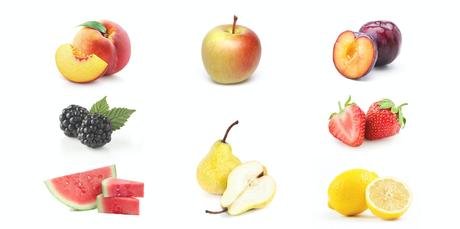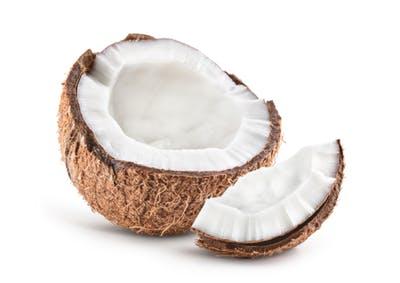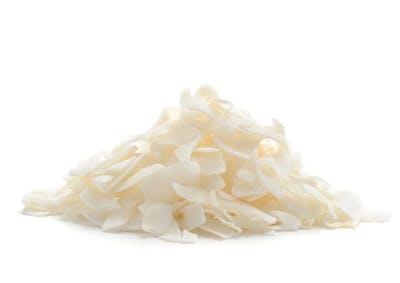Is eating fruit helpful or harmful for healthy weight loss? The answer depends on the type of fruit you choose, how much you eat, the diet you follow, and how your blood sugar responds.
Fortunately, you can enjoy certain fruits often - even daily - no matter which diet approach you prefer. The key is knowing which kinds and amounts to include.
In this guide, you'll learn how to choose the best fruits for weight loss that fit your dietary preferences and health goals.

Get your personalized meal plan with a FREE 30-day trial!
Selecting fruits for healthy weight loss
Healthy weight loss involves taking in fewer calories than your body requires to maintain its weight in a way that keeps insulin levels low, while meeting your needs for essential nutrients like protein, vitamins, and minerals. And for weight loss to be sustainable, it's also important to avoid feeling hungry or deprived.
Foods that promote healthy weight loss are those that provide the most nutrition and satiety - feeling comfortably full and satisfied - for the fewest calories.
These foods share several features, including:
- High protein percentage: Healthy weight loss foods get a high percentage of their calories from protein, an essential nutrient you need to consume to survive and thrive. Plus, strong evidence confirms that getting plenty of protein can help you feel full, lose body fat, and retain muscle mass.A food's protein percentage tells you how much of its calories come from protein instead of fat and carbs. All fruits are low in protein and get very few of their calories from protein. So, since protein plays such an important role in weight loss and overall health, fruit shouldn't be considered a primary source of nutrition in your diet. To lose weight in a healthy way, eat mostlymeat, seafood and eggs, dairy products, plant-based foods, and vegetables that provide a lot of protein per calorie. Enjoy fruit in smaller amounts after ensuring that you've met your protein target.
- Low energy density:"Energy density" refers to the calories (or energy) in a specific weight of food. It is typically expressed as the number of calories per gram of food (calories/gram). The lower the number, the fewer calories a given amount of food contains. Foods that are high in water or fiber have lower energy densities than foods with less water or fiber. This is because water provides zero calories per gram, and fiber is estimated to provide less than 1 calorie per gram. By contrast, protein and carbs provide 4 calories per gram and fat provides 9 calories per gram. Research suggests that people usually end up taking in fewer calories overall when they eat foods with low energy densities compared to foods with high energy densities. Most fresh fruits have very low energy densities (less than 1 calorie/gram). They contain "natural" sugar; indeed, nearly all of their calories come from sugar (carbs). However, because their sugar is diluted by water and packaged with fiber, most fruits contain few calories per serving.
- High in fiber: Fiber is the non-digestible portion of carbs found in plants. In studies, fiber has been shown to help people feel full, eat less, and absorb slightly fewer calories from mixed meals. Since these trials involved people who eat standard (higher carb) diets, some of these potential benefits may not apply to low-carb eaters. However, because fiber is bulky and stretches the stomach, it may provide you with short-term satiety, regardless of the diet you follow. Although all fruits contain fiber, some have much more than others. Fresh fruits contain anywhere from 0.4 to 9 grams of fiber per serving. In general, low-sugar fruits tend to be higher in fiber than other fruits.
Diet approach and health goals
Importantly, different types and amounts of fruit work well for different diets. And strong scientific support exists for many weight loss approaches.
For example, keto and low-carb diets, which include very little fruit, can be very effective for losing weight. Mediterranean diets, which typically encourage several servings of fruit per day, may also lead to weight loss. A low-carb Mediterranean diet with less fruit can be an effective weight loss approach, too.
Similarly, people have lost weight by following plant-based (vegan or vegetarian) diets that contain modest amounts of fruit. You can also eat a low-carb vegetarian or vegan diet that includes less fruit.
Finally, take your health goals into consideration when making fruit choices. Consuming higher carb fruits may raise your blood sugar if you have diabetes or prediabetes. So stick with lower sugar fruits, or test your blood sugar one to two hours after consuming higher sugar fruits to determine your personal threshold.
The best and worst fruits for healthy weight loss
Below, you'll find three broad categories of fruits: low sugar, medium sugar, and high sugar. Each category is divided into subcategories, where fruits are listed from best to worst based on their carb and fiber content, energy density, and percentage of calories from protein.
In this guide, we provide nutrition information for the most common fruits. These are based on average values. Protein, carbs, and fiber content can vary slightly depending on growing conditions and differences among fruit varieties.
For healthy weight loss, choose fruits with energy density ranges in the green columns. Note: Although all fruits have low protein percentages, some types can be enjoyed in moderation, depending on the type of diet you follow.
Low-sugar fruits
Most low-sugar fruits contain few net carbs (total carbs minus fiber) and generally provide more water and fiber than other fruits.
These fruits are ideal for all weight loss diets, including keto and low carb. If you follow a keto or low-carb lifestyle, feel free to include one to three servings of low-sugar fruits per day, based on your target carb level.
Berries
Brightly colored berries are prized for their delicate flavor and low sugar content. However, if you follow a keto or very low-carb diet, consume blueberries in very small amounts. They provide about twice as many carbs compared to an equal serving of the other berries on this list.
Enjoy berries alone or combine them with plain Greek yogurt or cottage cheese for a high-protein, high-fiber breakfast or snack.
Here is the nutrition information for different berries:
Fatty fruits
Fatty fruits include non-sweet fruits that are often grouped with vegetables, such as avocados and olives. They're lower in carbs and higher in fat, calories, and fiber than many fruits.
Include a serving or two of fatty fruit daily - in salads, other meals, or snacks - to boost flavor and fullness without adding excessive calories.
Also, stick to small portions of coconut, especially dried coconut, which has a very high nutrient density. Dried coconut contains much less water and nearly twice as many calories compared to an equal serving of fresh coconut.
Here is the nutrition information for different fatty fruits:


Medium-sugar fruits
Medium-sugar fruits are popular because they're flavorful, versatile, and widely available in most areas. They're the largest and most diverse broad category of fruits in this guide.
Eating up to three servings of medium-sugar fruits can fit with Mediterranean, vegetarian, and vegan diets, among others. However, most of them are too high in carbs for keto and low-carb diets unless consumed in small amounts.
Melon
Unlike most fruits, melons provide very little fiber. However, they're especially rich in water (watermelons are named appropriately!), which dilutes their sugar content. Because of this, they have modest carb counts and low energy densities.
Here is the nutrition information for different melons:
Citrus
Citrus fruits provide vitamin C and flavor that ranges from slightly tart to extremely sour. Their carb counts vary depending on type; the sweeter the fruit, the higher its sugar and net carbs. If you follow a keto or low-carb diet, feel free to add a wedge of lemon or lime to your water or iced tea and use their juice in salad dressing, sauces, and other recipes.
Here is the nutrition information for different citrus fruits:
Other medium-sugar fruits
This list includes summer fruits like peaches, plums, cherries, and fruits that are available year-round, such as apples and pears. Enjoy these mildly sweet, high-fiber fruits alone or chopped up and mixed with Greek yogurt or cottage cheese.
Here is the nutrition information for other medium-sugar fruits:

Get your personalized meal plan with a FREE 30-day trial!
What's your main health goal?
High-sugar fruits
As expected, the sweetest fruits are higher in sugar and carbs than other types. Therefore, they shouldn't be considered go-to fruits, no matter what type of diet you follow.
Fresh high-sugar fruits
The fruits in this group pack plenty of carbs per serving. Bananas are at the bottom of the list because they're not only high in sugar but also lower in water than other fruits.
So, if you eat a keto or low-carb diet, it's best to minimize or avoid high-sugar fruits altogether. If you follow a Mediterranean, plant-based, or other weight loss approach, you may be able to include a serving or two per day, depending on the rest of your diet and your blood sugar response to these fruits.
Here is the nutrition information for fresh high-sugar fruits:
Dried fruits
Dried fruits are by far the worst fruit option for healthy weight loss. Why? Most of their water has been removed, which concentrates their sugar and calories. You'll get more than twice as many net carbs and calories in a serving of dried fruit compared to an equal serving of the same fruit in its raw state.
Yes, dried fruit is higher in fiber than fresh fruit, but the increase in net carbs and calories is much greater. Some dried fruits contain added sugar, too. However, unsweetened dried cranberries and other berries are lower in sugar and can be used in very small amounts.
So, in addition to being low in protein, most dried fruits are loaded with sugar, have high energy densities, and don't provide much satiety per calorie.
To lose weight in a healthy, successful way, avoid or greatly minimize your dried fruit intake.
Here is the nutrition information for dried fruits:
Was this article helpful?
We appreciate your helpful feedback!
Fruit-based recipes for healthy weight loss
Although fruits are delicious on their own, they're also excellent additions to high-protein entrees, desserts, and smoothies. Here are some healthy weight loss recipes that feature fruit:

